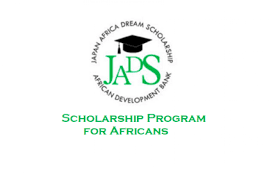Consultancy to Conduct a Baseline Survey for Sustainable Pyrethrum Market System Development Project in Kenya- DanChurchAid
1. Background Information
DanChurchAid (DCA) vision is to strengthen the world’s poorest people in their struggle for a life in dignity. DCA is one of the largest and oldest humanitarian organizations in Denmark, working both with long-term development projects and humanitarian action since 1922. DCA has three thematic priorities: Save Lives; Build Resilient Communities; and Fight Extreme Inequalities. DCA’s international programs contribute to the fulfilment of several SDGs, including SDG 2, 5, 8, 13, 16 and 17.
DCA Kenya, in consortium with partners Kentegra Biotechnology and the National Council of Churches of Kenya (NCCK), have secured 3.5-year project funding from the Norwegian Agency for Development Cooperation (NORAD). The project – sustainable pyrethrum market system development project in Kenya (informally known as project ‘Daisy’) aims to contribute to a sustainable business eco-system, improved and resilient livelihoods for smallholder farmers and workers engaged in the pyrethrum sub-sector in Kenya, focusing on Nakuru, Nyandarua West Pokot and Elgeyo Marakwet Counties. The four overarching outcomes are:
- Up-scaled production of pyrethrum resulting in increased yield
- Improved crop quality (pyrethrum content) – resulting in increased income;
- Improved and organized producer groups and systems that enable collective action in access to inputs, markets, financial services, and championing of farmers rights; and
- Improved policy and regulatory environment supporting growth of the pyrethrum sub-sector and responsible business conduct.
As part of the Project ‘Daisy’ inception phase, DCA intends to undertake a baseline study covering the project beneficiaries in Nakuru and Nyandarua Counties – Kenya and is seeking the services of a consultant for the same.
2. Detailed Project Information
The project will contribute to a sustainable business ecosystem and improved resilient livelihoods for smallholder farmers and workers engaged in the pyrethrum subsector in Kenya through two complementary outcomes: the anchor commercial outcome contributing to local market system development and enhanced commercial viability of the pyrethrum sub-sector to sustain the developmental outcome of increasing jobs and incomes for households engaged in the sector. This will be achieved through:
- Up-scaled production of pyrethrum by 10,000 contracted and 10,000 additional farmers – resulting in increased yield
- Improved crop quality (pyrethrum content) – resulting in increased income
- Improved and organized producer groups & systems enable collective action in access to inputs, markets, financial services, and championing of farmers rights
- Improved policy and regulatory environment supporting growth of the pyrethrum sub-sector and responsible business conduct
3. Baseline Survey Purpose
The purpose of this baseline is to collect data as benchmark for proposed activities against all the project outputs and outcomes to be included in the project, and qualifying project indicators (output and outcome level) for the project implementation phase. The survey will be conducted by designing data collection methodologies and collecting data on all proposed project indicators and the overall project Results Framework (to be shared with the successful candidates in preparation for the interview process).
The methodology including tools should be replicable for the mid-term and final evaluation processes as well as for the ongoing monitoring processes – as espoused in the MEAL Framework. The baseline survey will provide the benchmarks against which any changes resulting from the project interventions and results will be measured. Moreover, DCA hopes the methodology can be replicated in similar DCA projects as well as generate lessons for the future.
4. Specific Objectives of the Survey
The following specific objectives will be pursued by the study:
- To design data collection methodologies for all project indicators include setting criteria, defining key aspects, and developing data collection tools.
- To collect, analyze and present baseline data for key project – impact, outcome, and output indicators (both direct and indirect beneficiaries)
- Propose monitoring methods for measuring impact and sustainability of interventions and collect, analyze, and present any baseline data related to this
5. Scope of Work & Methodology
The consultants are required to design, plan, carry-out and present the project’s baseline study for results at all levels, project effectiveness and sustainability. The study is to be conducted in Nakuru, Nyandarua, West Pokot and Elgeyo Marakwet Counties based on a strategic, comprehensive and replicable sampling approach. The aspects below should be presented in the inception note. The baseline study should adopt a mixed methods approach, integrating quantitative and qualitative methods to ensure that data collected is triangulated and can be communicated, explained and contextualized. It is expected that the research team will combine a minimum of household surveys / questionnaires with structured interviews, Key Informant Interviews and focus group discussions. Research teams are expected to use digital data collection and analysis methods. Document and desk review should complement the collection of data and primary information sources.
6. Data Collection
The sample size (# of communities, # of farmers, # of stakeholders etc.) and selection criteria will be determined in collaboration with the consortia and the consulting team to provide a fair and statistically relevant representation of the project beneficiaries and stakeholders. Information shall be collected from across specified beneficiaries, partners and stakeholders functioning across the Pyrethrum Value Chain.
Data must be dis-aggregated by disability, gender and age (youth is defined as people below 35 years) and socio-economic status.
7. Consultancy Deliverables
The following will be the expected deliverables of the consultancy:
Inception report prior to initiating the study, to be submitted electronically in English and detailing the below.
- The baseline study approach: –
- sampling framework,
- data collection strategy and methodologies,
- data collection tools, criteria
- Work plan for the baseline study including: –
- data collection processes as well as a quality assurance plan setting out the systems and processes for assuring the quality of the research process and deliverable viz., testing of the survey tools, training of enumerators, logistical and management planning, field work protocols and data verification.
- data cleaning and analysis.
- Draft baseline report: after data collection, the report will be detailing the below:
- Summarizing the methodology of the study and specifying any limitations /challenges and changes to the initial design.
- Collect and analyze the data resulting in a presentation of baseline values for all relevant project indicators.
- Analysis of the aspects mentioned in the specific objectives above.
- Conclusions and recommendations on the project MEAL Plan – related to ongoing monitoring and data collection.
This information will be outlined on a standard format as below:
- Title Page
- Acronyms
- Executive Summary
- Table of Contents
- Introduction/Background
- Methodology
- Analysis of the findings
- Conclusion and Recommendations
- Annexes/Appendices
- Final baseline report takes into account the feedback from the consortia and adjustments made to the draft report.
- Cleaned Baseline database including all primary data collected (in excel and/or any other or similar application).
- PowerPoint presentation summarizing the main findings and key recommendations on the project MEAL plan
8. Roles and Responsibilities of DCA
DCA will manage the consultancy task, consulting with the other consortia partners for input. DCA is responsible for managing the contract including the procurement process, signing agreement with the selected company/firm, managing communications, and involving the other partners in ensuring the quality of the work through supporting in selection of capable firm/company/ consultant and commenting on the draft tools and reports at various levels.
9. Duration and Time Frame
The baseline study shall be expected to be completed within 30 calendar days with effect from the day of signing the contract with DCA
10. Consultant’s Expertise Required
The contract will be awarded to a recognized team of consultants, which can propose a research team meeting the following criteria:
- Relevant degree(s) in Social sciences/development studies and market systems development.
- Strong experience with and knowledge of participatory qualitative and quantitative research methods and sampling strategies, as well as community engagement.
- Statistical analysis skills and strong proficiency with data analysis packages.
- Proven experience in conducting baseline study surveys and evaluations, with research experience in agricultural value chains with involvement of private sector (preferably both international and local companies) and smallholder farmers.
- Disclosure of conflict of interest.
11. Budget
The budget for the study should include all relevant costs including professional fees (consultant team as well as local staff including enumerators etc.), travel, local transport, accommodation, training etc.) and deployed within no more than 21 days.
12. Expression of interest submission
DCA invites interested teams to submit the following EoI documents by date to be specified:
- Expression of interest outlining how the consultant(s) meets the selection criteria and their understanding of the ToR.
- A summarized description of the scope of work and the intended methodology to be used including sampling methods, data collection tools etc.
- Tentative work plan including proposed activities and time frames.
- Names and contacts of three recent professional referees (previous clients) for whom similar work has been conducted.
- 2 examples of similar pieces of work completed recently (within the last 3 years).
- Names and CVs of individuals or team members proposed, highlighting their experience relevant to this study and their roles in the achievement of the assignment.
- Itemized financial proposal.
The deadline for submission of EOI is 26th November 2021. We will take references immediately and notify the selected team shortly thereafter. The contract should be signed latest within 10 days after deadline and the work should start immediately thereafter.
The proposal shall be sent to procurementkenya@dca.dk with “Sustainable Pyrethrum Market System Development Project – Baseline Study” as the email subject.
Any questions to the study should be directed to the Area Program Manager – Mark Abaha mema@dca.dk
13. Ethical standards and Intellectual Property
The consultants should take all reasonable steps to ensure that the study is designed and conducted to respect and protect the rights and welfare of the people and communities involved and to ensure that the study is technically accurate and reliable, is conducted in a transparent and impartial manner, and contributes to organizational learning and accountability.
All products resulting from this study will be owned by DCA. The consultants will not be allowed, without prior authorization in writing, to present any of the analytical results as his or her own or to make use of the research results for private publication purposes.








